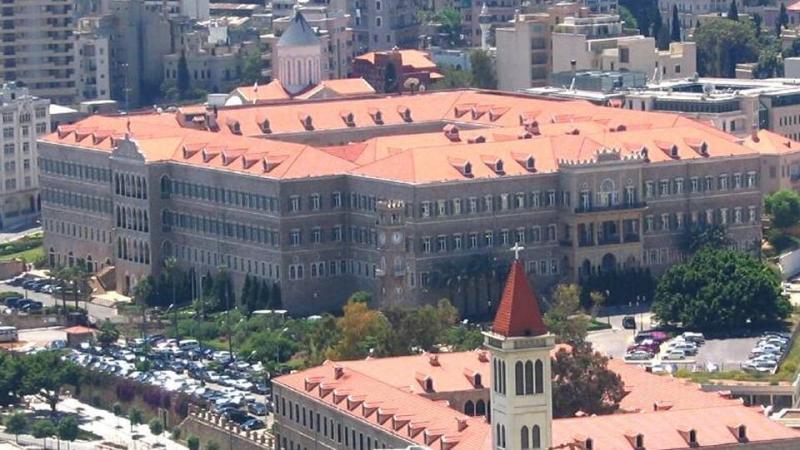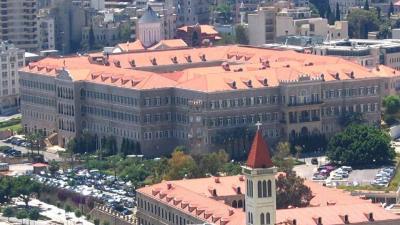Eyes in Lebanon are focused this week on the outcome of political consultations regarding the formation of a government, with some asserting that its formation is imminent in the coming days. However, the issue of changing some ministers remains subject to discussions, and its implementation faces obstacles that may lead to the option of continuing with the caretaker government as is, according to ministerial sources close to the presidency speaking to Al-Sharq Al-Awsat.
At this time, Hezbollah Central Council member Sheikh Nabil Qawq confirmed that the government will be formed in the coming days. He emphasized during a memorial ceremony in the south that "the formation of a new government with full powers and attributes is necessary, and crises cannot be resolved without it," indicating, “In the coming days, we will witness the formation of this government, God willing, which will create positive atmospheres across the country and enhance further steps to exit the crises."
Ministerial sources told Al-Sharq Al-Awsat: "After the prime minister-designate Najib Mikati returns from abroad and the Parliament convenes today (Monday) to approve the budget, Mikati is expected to meet with President Michel Aoun on Tuesday, where he should announce the definitive news." However, the sources note new old obstacles resurfaced regarding the replacement of certain ministers whose names have been proposed, stating: "After the possibility of changing Deputy Prime Minister Saadeh Al-Shami was raised, a site associated with the prime minister-designate indirectly responded, citing sources, praising his work and stating that he is a red line."
They added, "After Minister of Displaced Persons Issam Sharaf al-Din's potential replacement was discussed, former Deputy Talal Arslan visited Hezbollah's Secretary-General Hassan Nasrallah, requesting the identification of a replacement, knowing that the agreement was not to name a provocative figure for the head of the Progressive Socialist Party, Walid Jumblatt," which contradicts the plan being worked on for the government’s formation.
As for the sources pointing to information suggesting a correction in the relationship between Mikati and Minister of Economy Amin Salam, and thus adjusting the option of replacing him, they discuss the option of replacing Al-Shami, explaining: "This issue was raised when it was said that Mikati would name a Sunni minister instead of Salam, while President Aoun would name an additional Christian minister outside of his share, instead of Al-Shami, who is associated with the Syrian Nationalist Party and no longer has representation in Parliament, similar to Arslan. This complicates the changing of any other Christian minister outside the president's share, considering that each of these five ministers is affiliated with a particular political entity, which is supposed to provide confidence to the government in Parliament."
Thus, given these complexities and obstacles that arise every time the change of one minister or another is discussed, the conversation has returned, according to sources, to the possibility of resorting to the option of reviving the caretaker government, which means issuing new decrees to form it as it is, provided that the participating blocs grant it confidence in Parliament to prevent any constitutional issues regarding the president's powers and threats to withdraw ministers, among other concerns, in case of presidential vacancy and delays in electing a new president. This issue has been raised by several parties, including Al-Manar Channel affiliated with Hezbollah.
While awaiting what this current week will bring in terms of political developments, calls continue for the formation of a government and the election of a president as soon as possible. This was underscored by the Sheikh of the Druze community, Sami Abi al-Muna, urging the "formation of a government quickly and the election of a new president at the scheduled time to restore trust in the state and its institutions, in hopes that the wheel of reform and development can move forward," stressing the need to "entrench trust in our institutions and enhance people's hopes for their future and stabilize them in their land and homeland despite all challenges and difficulties."
For his part, the distinguished Ja'fari Mufti Ahmad Qablan considered that "Lebanon is in urgent need of a government to alleviate the burden of the cancer of vacancy, with an eye on a rescue presidential settlement before the country turns into a pile of rubble," affirming that "no matter the situation, the country should never be left to gangs and mafias."




